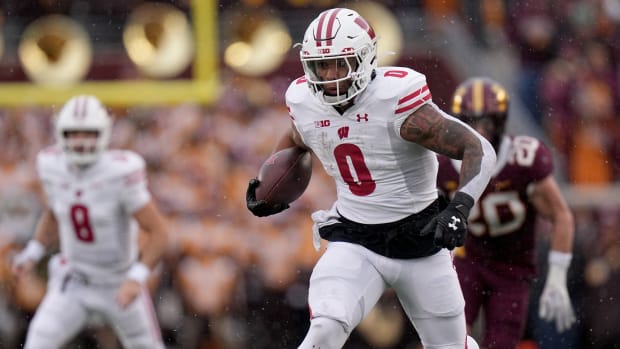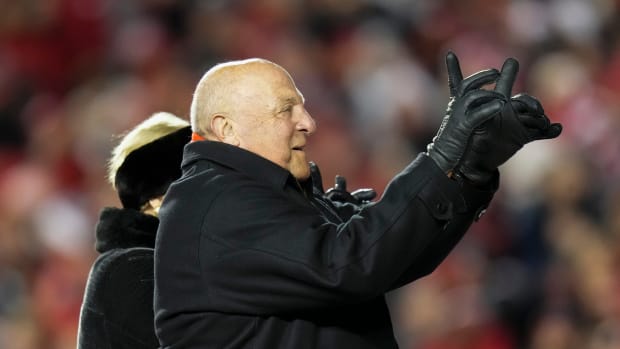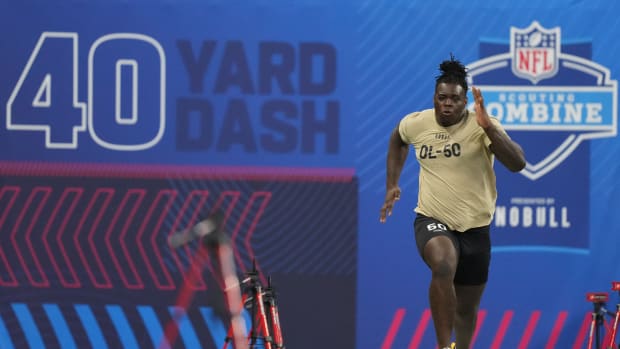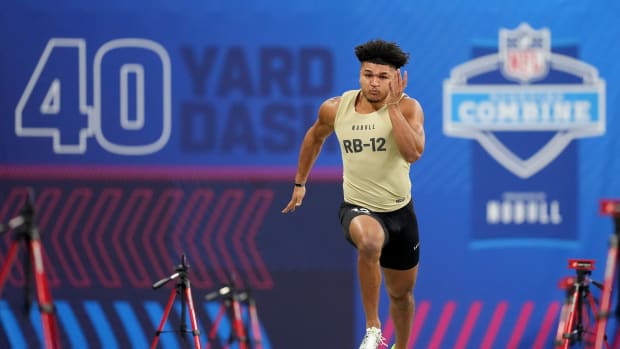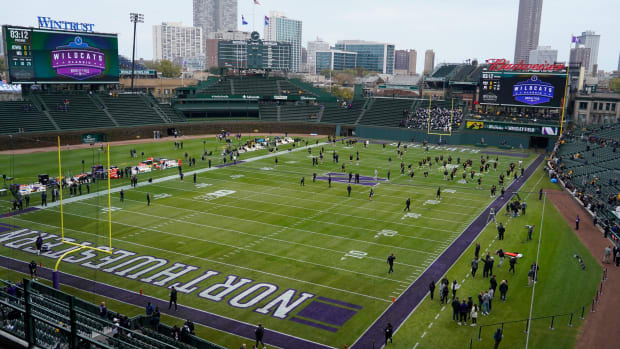Takeaways from Big Ten's 'Open Letter'
Amidst a weeklong wave of public sentiments -- and to put it euphemistically, mostly not-so-positive feedback -- after the Big Ten Conference announced its "postponement" of football and fall sports, commissioner Kevin Warren released an "open letter" on Wednesday afternoon.
It touched on several key topics, including reasoning behind the decision, whether there was a vote or not, and what the league is working on next.
Here are some quick takeaways from AllBadgers.com's perspective:
Warren Says There Was a Vote, 'Will Not Be Revisited'
First paragraph, third sentence:
"The vote by the Big Ten Council of Presidents and Chancellors (COP/C) was overwhelmingly in support of postponing fall sports and will not be revisited."
That is that regarding the recent, public discussion of whether there was a vote, according to the commissioner's words. It appears you can also shut the door on thoughts about any reconsideration.
The 'Primary Factors' of Why the Decision Came to Be
In its statement last week, the conference said their call was made due to "multiple factors." In the Wednesday letter, Warren laid out six points (and a couple subpoints) for the main reasoning for the Big Ten's move last week:
*Transmission rates continue to rise at an alarming rate with little indication from medical experts that our campuses, communities or country could gain control of the spread of the virus prior to the start of competition.
**As our teams were ramping up for more intense practices, many of our medical staffs did not think the interventions we had planned would be adequate to decrease the potential spread even with very regular testing.
**As the general student body comes back to campus, spread to student-athletes could reintroduce infection into our athletics community.
*There is simply too much we do not know about the virus, recovery from infection, and longer-term effects. While the data on cardiomyopathy is preliminary and incomplete, the uncertain risk was unacceptable at this time.
*Concerns surrounding contact tracing still exist, including the inability to social distance in contact sports pursuant to the Centers for Disease Control and Prevention (CDC) guidelines. While risk mitigation processes (e.g., physical distancing, face coverings, proper hygiene, etc.) can be implemented across campus for the student body population, it became clear those processes could not be fully implemented in contact sports.
*With the start of full-contact practices and competitions, it became increasingly clear that contact tracing and quarantining would risk frequent and significant disruptions to the practice and competition calendar.
*Accurate and widely available rapid testing may help mitigate those concerns, but access to accurate tests is currently limited.
*Significant concerns also exist regarding the testing supply chain, generally, for many of our institutions.
One component that Warren stated did not play a role--"financial considerations."
'We Understand' ... However .....
A couple of times in the letter, Warren starts with "we understand," followed by the topic and further explanation. First:
"We understand the disappointment and questions surrounding the timing of our decision to postpone fall sports, especially in light of releasing a football schedule only six days prior to that decision."
Then Warren explains, even with releasing the Big Ten football slate on Aug. 11, how the conference "consistently communicated our commitment to cautiously proceed one day at a time with the health, safety and wellness of our student-athletes at the center of our decision-making process."
To the Big Ten's credit, precautionary language was seen during the Aug. 5 declaration of the conference-only football schedule (see: "...issuing a schedule does not guarantee that competition will occur"). There was also wording in the July 9 announcement about the league's programs competing against just one another ("if the Conference is able to participate in fall sports").
Also seemingly addressing the many players and their parents who came out publicly about the news of the season's postponement, Warren said this:
"We understand the passion of the many student-athletes and their families who were disappointed by the decision, but also know there are many who have a great deal of concern and anxiety regarding the pandemic."
Towards the end of the letter in a separate paragraph, Warren also stated it "will continue to collect feedback from student-athletes, families, and other constituents and remains in active discussions with its television partners regarding all future plans." It should be interesting how the conference will communicate with the players and their parental figures moving forward after what has turned into a PR nightmare.
What's Next?
Warren mentioned that the conference has put together a "Return to Competition Task Force." According to the letter, those participating at the proverbial table include a variety of individuals "from the COP/C, sports medicine and university medical personnel, Athletic Directors, Head Coaches, Faculty Athletic Representatives and Senior Women Administrators to plan for the return of fall sports competition as soon as possible."
Public discourse about when a football season could theoretically take place started after the announcement last week, with coaches and others chiming in. That has continued in the past few days.
Sports Illustrated's Pat Forde reported this in his Wednesday article about Warren's letter:
Multiple league sources told SI Wednesday that consensus is building toward a winter football season, starting in early January and ending in late February, utilizing indoor stadiums around the Big Ten footprint. SI’s Albert Breer had the first information on that plan last week.
The Milwaukee Journal Sentinel's Jeff Potrykus also reported about a potential winter timeline as well earlier this week.
